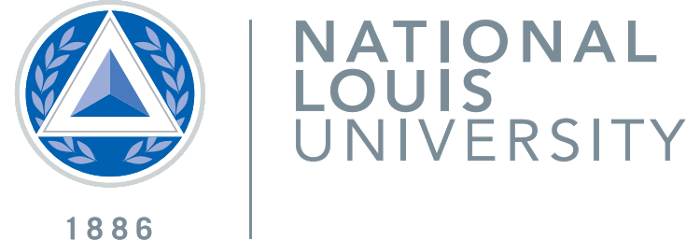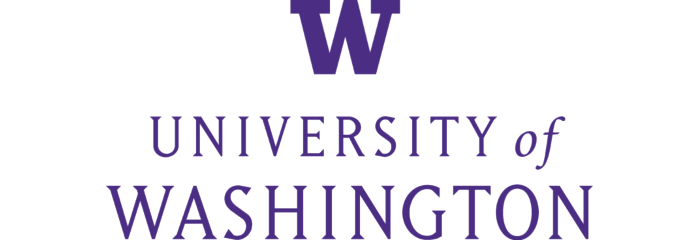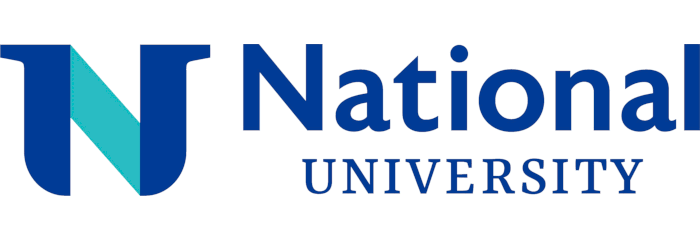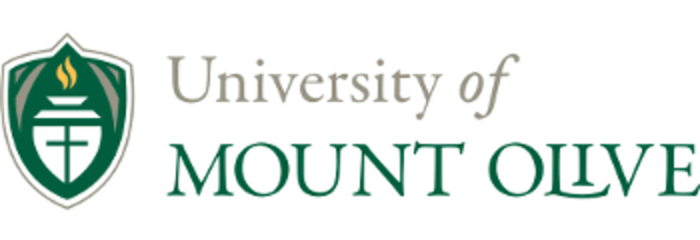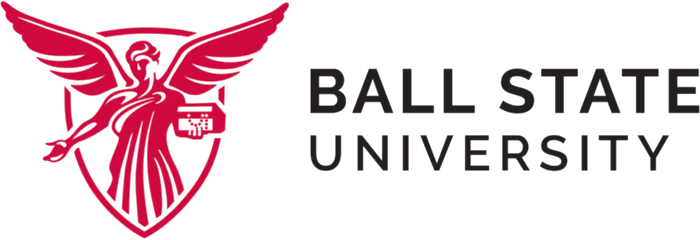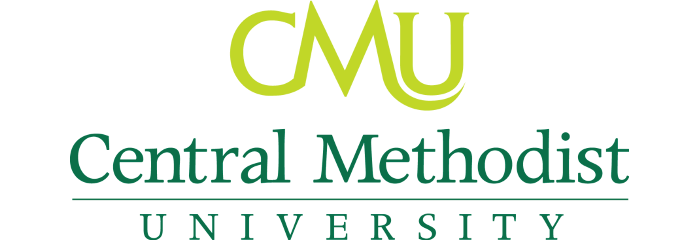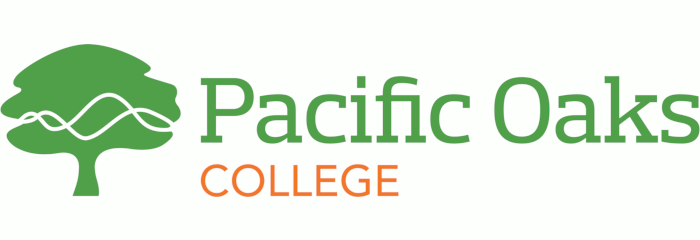2025 Best Early Childhood Education Degrees Online
Our list below of the best early childhood education degree online programs features accredited colleges with the highest number of program graduates.
Key Takeaways:
- Florida International University ranks #1 with 207 graduates from its BS in Early Childhood Education.
- Charter Oak State College boasts a perfect 100% retention rate.
- Western Carolina University has a 97% recommendation rate based on our student surveys.
For more, visit our methodology page. We also spoke with a career coach as well as a Montessori-trained educator, who both emphasized the importance of hands-on classroom placements and real-time mentorship when evaluating the best online early childhood education programs.
2025 Best Early Childhood Education Degrees Online
| Rank | School | Graduates | Annual Tuition | Median Salary | Recommendation |
|---|---|---|---|---|---|
| Florida International University | 207 | $16,997 | $53,756 | 93% | |
| Liberty University | 140 | $11,700 | $39,444 | 75% | |
| National Louis University | 122 | $11,880 | $45,971 | 85% | |
| University of Washington - Seattle | 121 | $41,997 | N/A | 92% | |
| University of Phoenix | 93 | $11,940 | $47,043 | 80% | |
| National University | 75 | $4,162 | $49,988 | N/A | |
| Western Carolina University | 67 | $6,249 | $44,764 | 97% | |
| University of Wisconsin - Whitewater | 61 | $12,360 | $47,683 | 94% | |
| University of Mount Olive | 55 | $13,650 | $43,236 | 100% | |
| Indiana Wesleyan University Online | 45 | $20,092 | $46,257 | N/A | |
| Charter Oak State College | 45 | $9,870 | N/A | 80% | |
| Arizona State University, Online | 42 | $24,780 | $52,113 | 93% | |
| Ball State University | 38 | $15,908 | $46,911 | 93% | |
| Central Methodist University | 37 | $8,250 | $35,263 | 88% | |
| Pacific Oaks College | 32 | $26,700 | $50,458 | 90% |
2025 Best Early Childhood Education Degrees Online - Program Details
- Graduates: 207
- Annual Tuition: $16,997
- Median Salary: $53,756
- Recommendation: 93%
Why we like them: FIU secures the first spot on our list for the most popular online early childhood education degree by graduating 207 students, demonstrating an exceptional level of reach and student impact. Perhaps this is because every single student is paired with a dedicated success coach. We want to note that this program does not lead to teacher certification.
- Graduates: 140
- Annual Tuition: $11,700
- Median Salary: $39,444
- Recommendation: 75%
Why we like them: Liberty's program is faith-integrated and emphasizes child development, instructional strategies, and Christian values, preparing graduates for roles in private schools, homeschool settings, churches, and childcare facilities. Online students here benefit from optional field experience opportunities in their local communities and receive free electronic textbooks.
- Graduates: 122
- Annual Tuition: $11,880
- Median Salary: $45,971
- Recommendation: 85%
Why we like them: NLU offers a Professional Educator License upon graduation, as well as the unique option to obtain Special Education and ESL endorsements, which are highly valued in an increasingly diverse and specialized educational landscape. The program emphasizes practical experience, mandating over 680 hours of fieldwork through two consecutive student-teaching terms.
- Graduates: 121
- Annual Tuition: $41,997
- Median Salary: N/A
- Recommendation: 92%
Why we like them: UW Seattle’s online Bachelor of Arts in Early Care and Education allows you to complete required community-based learning experiences in your current workplace. The program is intentionally flexible, offering both part-time (three years) and full-time (two years) tracks, which supports a wide range of schedules and life circumstances.
- Graduates: 93
- Annual Tuition: $11,940
- Median Salary: $47,043
- Recommendation: 80%
Why we like them: UOPX's online early childhood education program provides individualized support for state licensure navigation, including partnerships with hundreds of school districts for clinical placements. You benefit from a transfer-friendly structure that allows waivers of up to 21 credits for a Child Development Associate (CDA) credential, accelerating degree completion.
- Graduates: 75
- Annual Tuition: $4,162
- Median Salary: $49,988
- Recommendation: N/A
Why we like them: NU's degree includes field experience in NAEYC-accredited environments and direct mentorship by practicing professionals. Students can personalize their degree with upper-division electives in trauma-informed practice, curriculum design, and program administration.
- Graduates: 67
- Annual Tuition: $6,249
- Median Salary: $44,764
- Recommendation: 97%
Why we like them: WCU's degree offers both licensure and non-licensure concentrations entirely online. You can tailor your degree to either the Professional Education concentration — with required internships in North Carolina public schools for those who aim for licensure — or the Early Childhood concentration, which emphasizes action research in non-public settings.
- Graduates: 61
- Annual Tuition: $12,360
- Median Salary: $47,683
- Recommendation: 94%
Why we like them: UW-Whitewater has a stackable credential model for its non-license degree. If you are already a working professional with an existing credential, you can directly apply these toward your bachelor’s. The curriculum has integrated Wisconsin Registry Credentials spanning diversity, dual-language learner support, leadership, nature-based learning, and program development.
- Graduates: 55
- Annual Tuition: $13,650
- Median Salary: $43,236
- Recommendation: 100%
Why we like them: UMO’s Bachelor of Science in Early Childhood Education embeds practicum experiences throughout the curriculum. It's specifically for adult learners aiming to teach children from birth through kindergarten. This curriculum emphasizes language and literacy skills, culturally responsive teaching, and family engagement.
- Graduates: 45
- Annual Tuition: $20,092
- Median Salary: $46,257
- Recommendation: N/A
Why we like them: What sets IWU apart is its unique integration of Christian principles across the curriculum, allowing you to approach early childhood education through a biblically rooted worldview. The program is also lock-step, ensuring that you progress with a cohesive peer group, an uncommon feature that strengthens learning continuity.
- Graduates: 45
- Annual Tuition: $9,870
- Median Salary: N/A
- Recommendation: 80%
Why we like them: COSC's program has a three-pronged approach to concentration areas: Teaching (leading to Connecticut’s ECTC credential), Program Administration and Leadership, and Montessori, each tailored to distinct career aspirations within early childhood education — including a pathway that acknowledges both AMS and AMI Montessori credentials for substantial credit.
- Graduates: 42
- Annual Tuition: $24,780
- Median Salary: $52,113
- Recommendation: 93%
Why we like them: ASU’s online BA in educational studies with a focus on early childhood studies is designed for those pursuing non-licensure roles supporting children from birth to age five. Students in this program benefit from custom-created courses.
- Graduates: 38
- Annual Tuition: $15,908
- Median Salary: $46,911
- Recommendation: 93%
Why we like them: Notably, BSU's program is part of a nationally recognized Teachers College and maintains dual accreditation from the Higher Learning Commission and the Council for the Accreditation of Educator Preparation (CAEP). You can choose from a wide array of minors, including early intervention, autism spectrum disorder, and applied behavior analysis.
- Graduates: 37
- Annual Tuition: $8,250
- Median Salary: $35,263
- Recommendation: 88%
Why we like them: CMU’s Early Childhood Education program has dual accreditation through the Higher Learning Commission and the Missouri Department of Elementary and Secondary Education. This means seamless qualification for state certification from birth through third grade.
- Graduates: 32
- Annual Tuition: $26,700
- Median Salary: $50,458
- Recommendation: 90%
Why we like them: POC stands out for its deep commitment to social justice, cultural humility, and multicultural education within its online bachelor's program. The curriculum is geared toward working adults and emphasizes mastery of child-centered curricula, cultural competency, and working with bicultural and bilingual children.
Expert Advice: Why Real Classrooms Still Matter in Online Early Childhood Education
As you're thinking about earning your online early childhood education degree, experts say real-world classroom exposure remains irreplaceable. In the interviews below, educators Steven Mitts and Heather Step share firsthand insights on the importance of mentorship, field experience, and practical application when preparing to work with young children.
No Online Module Teaches You How to Calm a Room of Toddlers

Career Coach
"UUֱ�� early childhood education degrees have to keep pace with the speed and complexity of actual teaching. The theory is merely the beginning. The programs require embedded, required field experience, practicums, observation hours, and directed placements. The screen cannot reproduce a room full of twenty toddlers in transition time.
With no in-the-trenches experiences among children and working classrooms, graduates aren't ready for the field.
Employers seek out candidates who can adjust, clearly communicate with families, and manage behavior without blowing things up. No course module does that.
Online learning is effective for learning development stages, literacy theory, and learning assessments when the content is interactive and presented live. However, pre-recorded lectures and multiple-choice questions won't move on to workplace readiness. Programs need real-time feedback, coaching, and case-based learning with working teachers.
Typical positions are lead preschool teacher, assistant teacher, early intervention aide, or childcare program supervisor. Full licensure with supervised teaching hours and certification tests may be mandatory in some states. Others are more accommodating. You must investigate state-specific regulations before enrollment or reduce your job prospects after graduation.
If you're beginning an online early childhood education program, ask the admissions staff how frequently you'll be in an actual classroom. Then ask with whom you'll be being mentored and evaluated. If the responses are unclear, select another program. Your future is at stake."
EXPERT TIP
"Students must seek out hands-on hours in diverse settings, public and private environments, special education programs, and culturally diverse communities. The placements construct the skills that are most important in crises."
What Teaching Taught Me, From the Montessori Floor to the Virtual Classroom
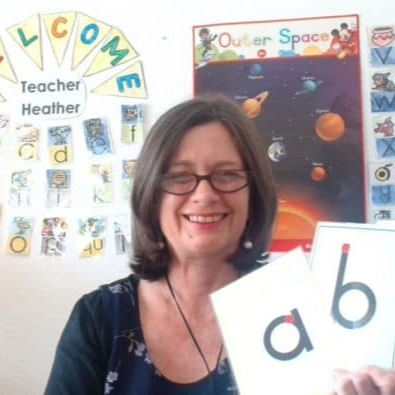
Teacher
"I've got a three year degree, a diploma in Early Childhood Education (Montessori) and I'm SACE registered for preschool. I'm currently teaching English Online... for which you need TEFL (Teach English as a Foreign Language). I did manage to teach Grade One in a private school... because I did have a degree.
One thing I remember about my lecturer at Modern Montessori is that she used a lot of practical examples for what she was saying. So I think that any theory needs to be backed up with case studies so that they can understand the reasoning behind something.
[Anywhere] you are actually working with children will help prepare you for the real thing. It also helps to have a good mentor or experienced teacher to watch so that you can learn a few things from them. I remember being placed in a school where I noticed how the teacher deftly separated the kids who were misbehaving while at the same time still keeping the whole class on an even keel.
The benefits [of an online program] would be that you can [study] at your convenience. It makes the opportunity more open for those far away from educational institutions.
[My advice is that] this is just the beginning! Keep updating your skills, and keep learning, not only from your course but from real life examples. And take the opportunity to further your education where you can.
Real life and experience are still the best teachers!"
What Is a Bachelor's in Early Childhood Education Degree?
Early childhood education refers to both the teaching and care of children up to the age of eight. Early childhood education professionals typically find employment in daycare centers, private and faith-based nursery schools, and private and public schools up to the third grade. Individuals who earn bachelor's degrees in early childhood education are qualified to assume better-paying teaching positions than preschool teachers and possibly administrative roles in schools.
The coursework in an early childhood education program is designed to train educators to teach the fundamentals, like language development, beginner math, and literacy skills. early childhood education students discover how to create learning and play activities that assist children in developing personal and social skills, and they learn about child health, hygiene, and nutrition. Programs should also help graduates prepare for any kind of student teaching experience and exams required to earn a license or credential needed to work with children.
If you're interested in studying early childhood education, you'll find that there are several types of teaching degrees available in this field, both on campus and online. For example, some schools offer a Bachelor of Applied Science (BAS) in Child Development program or a Bachelor in Elementary Education: Early Childhood Education. There are also Bachelor of Arts (BA) degrees and Bachelor of Science (BS) degrees in early childhood education. The curriculum for a BA degree often includes several arts and humanities courses, while a BA program may include more math and science courses.
Future educators may also want to check out our collection of affordable teaching degree rankings: Most Affordable Early Childhood Education Degrees, Most Affordable Elementary Education Degrees, Most Affordable Education Degrees
Degree Requirements
Whether you're earning your early childhood education bachelor's degree on campus or online, you must complete approximately 120-124 credit hours. Some courses may require you to participate in field experience, such as on-site classroom observation. If you're planning on a career that requires state licensure, you may also need to complete one semester of student teaching.
If you attend school full time, you may complete the graduation requirements in four to five years, but if you're a part-time student juggling school with work and other commitments, you may need additional time. Some online schools offer accelerated programs, which you may be able to finish in approximately three years if you're willing to take on a heavier course load.
Early Childhood Education Courses
Early childhood education programs are designed to ensure that graduates understand normal and exceptional childhood development, develop effective teaching strategies for young learners, and master classroom management. Although BS and BA programs differ in emphasis, many online child education degrees feature similar core courses, including the following:
Child Development
This course investigates how young children's brains and bodies grow during their early years. Topics may include childhood learning, thought processes, emotional range, and reactions to challenges. The environment's role in a child's development — including familial and cultural expectations — is a key theme when discussing these issues.
Early Childhood Learning Environments
Enrollees discover how to create learning environments where children feel comfortable, encouraging them to reach their learning potential. Professors may discuss sensory stimuli, movement and play, and unconscious bias in the classroom.
Early Literacy and Reading
Students learn established methods for teaching new readers. Coursework may cover children's literature and how to choose culturally sensitive material for different reading levels. The discussion topics may also include language acquisition, literacy development, and age-appropriate instructional methods.
Standards-Based Curriculum, Instruction, and Assessment
This course covers some of the tools teachers use in curriculum development. Enrollees learn both state and district standards to understand how lessons fit into broader curricula. During this process, each student creates multiple lesson plans, which are distributed to classmates for constructive feedback.
Admission Requirements
Depending on the admissions format of the colleges you've chosen, you may want to submit your applications as early as a full year preceding the fall semester when you plan to start taking college classes. Some colleges are more selective and accept fewer applicants than others, and the most selective of these often set earlier deadlines.
When you're submitting your online application, you may be asked to supply one or more of the following items:
-
Official high school or GED transcripts, usually with a GPA of at least 2.5
-
A personal essay
-
A list of extracurricular activities, including jobs and volunteer activities
-
Recommendation letters from teachers, coaches, supervisors, or other mentors
-
Scores from college entrance exams, such as the SAT or ACT
What Can You Do With a Bachelor's in Early Childhood Education Degree?
Although you can work as a childcare worker without a bachelor's degree, you'll need to complete a four-year program in early childhood education or elementary education to become a licensed teacher of young children. You may also be interested in pursuing a graduate degree to develop specialized teaching abilities, move into administrative roles in education, conduct research, or work in academia.
Further Education
After earning a bachelor's in early childhood education, the value of continuing your education at the graduate level depends on your career goals. If you aspire to the highest paying leadership positions in education, you may need an advanced degree.
Master's in Early Childhood Education
Master's in early childhood education programs are designed to help students deepen their understanding of the educational, emotional, and social needs of young children. Courses often cover advanced topics in pedagogy and the use of technology. Earning a master's degree may allow you to command a higher salary in your current role, and it may qualify you for leadership and administrative positions, such as preschool director or elementary school principal.
Master's in Education
Master's in education programs are designed to improve your teaching abilities and enhance your understanding of curriculum development, assessment and measurement, and pedagogy. Having a master's degree may allow you to increase your salary, and it may open the door to leadership roles. Some programs may also offer you the opportunity to focus on a concentration, such as learning design, technology in education, or English as a second language.
Doctorate in Early Childhood Education
You have two options when it comes to earning a doctorate in early childhood education. A Doctor of Education (EdD) with a specialization in early childhood education prepares you for high level leadership positions, such as a school district administrator. The focus of an EdD program is often on the practical application of theory and research. A Doctor of Philosophy (PhD) in Early Childhood Education prepares you for a career in academia, often involving teaching educators at the college level and conducting original research.
Similar Pathways
Your bachelor's degree in early childhood education can also be used as the foundation for other graduate degrees designed to prepare you for specialized roles in the field.
Master's in Educational Leadership: While many master's degrees in the field of education focus on the practice of teaching, a master's in educational leadership explores topics of interest to educational administrators and policymakers. These include cultural diversity, curriculum design, assessment, collaborative leadership, and legal and ethical issues in education.
Master's in Elementary Education: A master's program in elementary education is designed for new or early career elementary school teachers who want to deepen their understanding of curriculum development and enhance their skills in classroom management.
Master's in Physical Education: With a master's in physical education, you'll be able to work with students in all grade levels (K-12). While teaching students how to participate in group sports, such as basketball and softball, you'll introduce students to the benefits of health and fitness.
Master's in Secondary Education: A master's in secondary education is a good choice if you'd prefer to work with middle school and high school students. In addition to courses on adolescent psychology and teaching strategies, you'll also take courses on teaching the specific subject you've chosen, such as English, algebra, or biology.
Master's in Special Education: Special education teachers work with students who have learning disabilities or behavioral issues that may negatively impact their ability to learn. In a master's program in special education, you'll learn to modify lesson plans and develop teaching strategies that help young learners achieve academic success.
Early Childhood Education Careers
The term “early childhood education” is broad, encompassing a variety of career options. The connecting thread is a desire to help children learn during their most impressionable years as they discover who they are and how they relate to others. Many graduates go on to become , who are the highest paid professionals in the early childhood education field. Others become preschool teachers, childcare center directors, teaching assistants, or childcare workers.
What Else Should You Consider When Choosing an Early Childhood Education Degree?
Perhaps the most important criterion in selecting an early childhood education program is whether it will help you launch the career you envision for yourself. If you're interested in one of the many education specializations, such as special education or technology, make sure the schools you're considering offer the appropriate courses for your goals. Also, if you're thinking about going to graduate school, choose a program that will prepare you for advanced study.
A closely related consideration is accreditation, which is granted only to schools that meet the national standards for educational excellence. Many states require teachers and childcare workers to have earned degrees from accredited colleges, so be sure the school you choose meets your state's education requirements. Accreditation is also important if you plan to apply for financial aid or transfer credits to another school. The and the each offer a database of recognized schools, programs, and accrediting agencies.
While schools can be accredited on an institutional basis, individual degree programs can be assessed by professional organizations to determine whether the coursework is designed to help students develop specific competencies in a given discipline. The sets the national standard for higher education programs in early childhood education. They work with the to accredit bachelor's and master's degree programs. You can use the council's to determine the accreditation status of specific programs.
In addition to these factors, you'll need to decide if you want to pursue an early childhood education degree online. Online programs usually offer greater flexibility than traditional programs because students can engage in coursework, class discussions, and assignments at their convenience. Students with strong time management skills may be better suited for online courses, while students who require more structure may prefer on-campus classes. UUֱ�� early childhood education programs may also require you to arrange for your own practicums and other field experience at facilities near your home.
FAQs About Bachelor's in Early Childhood Education Programs
Can You Get an Early Childhood Education Degree Online?
Yes, you can get an early childhood education degree online. Many schools offer fully online programs that allow you to complete most of your coursework through an online learning system. You can then complete any fieldwork, practicum, or student teaching requirements at schools and daycare centers near your home.
Why Is STEAM Important in Early Childhood Education?
STEAM is important in early childhood education because it encourages children to learn through exploration and helps them develop valuable skills. The STEAM approach to teaching — which combines the scientific fields of science, technology, engineering, and math with the arts, such as language arts and music — gives children opportunities to practice their critical thinking, problem-solving, and communication abilities.
How Do I Become an Early Childhood Educator?
You can become an early childhood educator in several ways. You might consider gaining some experience first by working as a teacher assistant or childcare worker — two occupations that require only a high school diploma. To qualify to work as a preschool teacher, you will need to earn an associate degree; to work as a kindergarten or elementary school educator or daycare center administrator, you will need a bachelor's degree in early childhood education or a similar subject. Depending on your state's laws and your career path, you may also need to obtain some type of license or teaching credential to work with children.
Why Is Early Childhood Education Important?
The earliest years are some of the most important in the span of human development. Young children need preschool teachers and elementary school teachers — experts in both teaching and child development — to help them develop healthy social skills and a strong foundation for knowledge. Positive experiences during the pre-K years help set up children for success in elementary education and beyond.
What Specializations in Early Childhood Education Can I Take?
Early childhood education majors can focus on several specializations as they're earning their bachelor's degree. Some students may want to concentrate on working with a particular group of children, such as infants and toddlers or children who could benefit from special education. Other early childhood education students may want to prepare for administrative roles or explore the use of educational technology in the classroom.
Bottom Line
For many people, teaching and caring for young children is richly rewarding. However, studies show that preschool teachers and childcare workers often earn low salaries and experience a . Earning an online bachelor's degree in early childhood education may enable you to command a higher salary, equip you for greater success in the workplace, and position you for other related jobs if you decide to take your career in a new direction in the future.
Student Reviews of Online Early Childhood Education Programs
As a current student at the University of Phoenix, I can honestly say this experience has been life-changing for me. Balancing school and family isn't always easy, but the flexibility of the online classes and the constant support from not only my instructors but also my advisors make it possible. Every class challenges me to grow and gives me confidence in my abilities. I feel encouraged, motivated, and proud to be working toward my degree surrounded by people who truly want to see me succeed. The... Read More
Review Date: 10/29/2025
Would Recommend: Yes
Helpful for Career: No
This has been a wonderful experience thus far, and I'm just now bordering on my Sophomore year. The instructors are experts in their fields and passionate about their subjects. Most of them are very warm and approachable, responding quickly to questions, and providing customized feedback, which is amazing considering the amount of students they may have in any one class. I have a bit of trouble with submitting assignments online sometimes, but tech support has my back at those late night hours. All... Read More
Review Date: 5/28/2025
Would Recommend: Yes
Helpful for Career: No
University of Phoenix is a great School to attend. I mean, they practically stay in touch with you by email, and phone to make sure that you stay focused and on track. They also will walk you through any problems that you may have with anything. I didn't have any trouble while attending this School. My grade average was an A. I had my reason for leaving this School, but it wasn't anything that they did wrong, it just was a personal matter. I would recommend this School to everyone. Thanks University... Read More
Review Date: 7/7/2024
Would Recommend: Yes
Helpful for Career: Yes
Teachers- amazing Online- somewhat easy to navigate Getting started- easy, counselors were very attentive and helpful Asking for help or trying to leave? Radio silence. My first advisor dropped me without saying anything (I completely understand life happens and things come up) but my second advisor never sent me an email. I was given a week off of classes with no notice, I was put into classes without notice (which made me late + behind on assignments, I didn’t know I was in classes until I got... Read More
Review Date: 1/9/2024
Would Recommend: No
Helpful for Career: No
Do not recommend going into Early Childhood Education, the pre-k practicum is a joke and you will not learn much. I would stick to elementary education at Pitt or find a different school for early childhood programs. You will have better luck learning on Pinterest and in a real classroom
Review Date: 5/10/2023
Would Recommend: No
Helpful for Career: No
I had great support from my professors and advisors. They always answered my questions and encouraged me to keep studying for my degree. I enjoyed my Early Childhood classes and have used what I have learned in my job. I hope to one day find a job in a public school and use my degree.
Review Date: 5/4/2025
Would Recommend: Yes
Helpful for Career: Yes
I'm beyond disappointed and dissatisfied with UAGC. I first attended ashford that merged with UAGC during my first year and each year the costs has increased without better student care, learning resources and better engaging college professors. If you're going to spend over $1500 for one course I would expect better. The re-entry team promised me a grant to help towards my balance if I came back to register. It turn from yes we can too now I don't know we have to wait and see after you finish your... Read More
Review Date: 2/22/2023
Would Recommend: No
Helpful for Career: No
Great school! Flexible, learned a lot! I loved my professors and the knowledge that I am learning. It worked within my schedule as a mom and work full time. I can’t wait to do my masters program through this school. I loved the having assistance when I needed it.
Review Date: 4/24/2024
Would Recommend: Yes
Helpful for Career: Yes
I love the when it comes to the education, however I am very disappointed in their customer service and technical support. I have been trying to register for my next semester for three weeks now, everytime I talk to someone there is a excuse and everytime I submit a ticket there is a excuse. Ashworth College use to be on point with everything and now there lagging behind. I am really considering transferring to another college. This is getting to be overwhelming and truly ridiculous.
Review Date: 4/25/2023
Would Recommend: No
Helpful for Career: No
Walden University's customer Service is atrocious. The utilize parchment for their transcripts, but for some reason their IT department cannot keep it running. I had to request my transcripts on October 31st and learned their system was down and this isn't the first time this has happened. They're response to this was very blasé and said to just wait. After consistent emails their team acted like they were unable to send an unofficial to anyone, although they had no issue sending it to my own email.... Read More
Review Date: 11/8/2022
Would Recommend: No
Helpful for Career: No
I have nothing but great things to say about Purdue Global. I am a mother of 6, entrepreneur and often times working over 50 hours a week. Online learning with Purdue makes it so easy and convenient to get your degree. The professors are great and work with you and the advisors go above and beyond to help in any way they can. Thank you Purdue I will recommend Purdue Global University to family and friends.
Review Date: 6/23/2021
Would Recommend: Yes
Helpful for Career: No
The school appears to be everything at first, until you start having to deal with the unprofessional BS. Seems that every book is on back order even up to 8 months, if you purchase your book they wont reimburse you, also they tend to lie about how much the cost of the program is and keep going up on your tuition. Now if you can get the tuition paid everything would be fine but thats the hardest part because they keep sending you a prior semester lease to sign before the previous is paid off going... Read More
Review Date: 2/6/2018
Would Recommend: No
Helpful for Career: No
I started college at csusb and ended it with national university with a ba in ece. I am starting my MBA in November and looking at the reviews for National does worry me because people don't seem to appreciate the school as valid. It was just as easy or hard as any other school if you ask me but just goes at a pace that works with your schedule. I am hoping that just because i got my degree from there it doesn't hurt my ability to get a job in the future.
Review Date: 9/23/2019
Would Recommend: Yes
Helpful for Career: Yes
I was nervous to start an all online program but I did it anyways and I'm glad I did. I have read reviews of teachers and staff not being very helpful, but honestly when I first started I received one call a week from my advisor checking on me and making sure I was understanding things. I felt like it was too much for me but I know that they were just trying to be helpful. The online classroom is really easy to understand and I am able to work school around my busy schedule. It is more expensive... Read More
Review Date: 5/6/2017
Would Recommend: Yes
Helpful for Career: No
I have been with Ashford since Feb 2018 and have had nothing but a great experience. Even with a little mishap just now with my account and unpaid balance from last year it was taken care immediately. However, this is an ONLINE school, at a teach yourself type pace. If you put in the effort and time, you will receive good greats. The instructors, at least the ones I have come in contact with, have been helpful and understanding.
Review Date: 2/5/2019
Would Recommend: Yes
Helpful for Career: Yes
Great support from advisor! I am taking online course to complete a bachelor degree in Early Childhood Education Leadership. this course have been amazing opportunity for me to learn and keep my job at the same time. amazing supportive teachers, affordable tuition, and flexible schedule that helped me to earn the degree.
Review Date: 9/23/2017
Would Recommend: Yes
Helpful for Career: Yes
I enrolled with Ashford University in 2013 and I have had nothing but great experiences. The course work is challenging and exciting, and I am only 7 months away from obtaining my bachelor's degree. I have truly learned a lot thus far and I have already been able to find a job in my field of study due to my knowledge gained within my program. You have to put in the work to see the results. It isn't going to be spoon fed to you, which is what a lot of people seem to expect. If you try hard and put... Read More
Review Date: 8/5/2016
Would Recommend: Yes
Helpful for Career: Yes
I love Rasmussen. Not only am I a student, but I also work for the school. I am an accelerated student meaning that I am packing 4 classes into every 11 week session and I couldn't be any happier. I have attended other online schools and never felt like I was part of a community, but here at Rasmussen everyone is part of a family. I work along side advisors, deans, admissions personal and others and I am never treated any different because I am a student. I am proud to be a Rasmussen Moose and will... Read More
Review Date: 10/12/2015
Would Recommend: Yes
Helpful for Career: Yes
Okay. Let's clarify a few things. So many negative reviews about this school, but so much similarity to the complaints. "This is a trash school, because I got caught plagiarizing someone else's work!" Umm really, a school that doesn't allow cheating is a trash school? "All they want is your money!" Hmm, is there some magic college out that doesn't require you to pay for your education? "I can't find a job anywhere with my degree and they promised!" Name me one school online or otherwise that guarantees... Read More
Review Date: 5/24/2016
Would Recommend: Yes
Helpful for Career: Yes
I would say that I have been having a great experience with Ashworth College. I'm going to graduate very soon I still have only 10 more courses to go which I'm planning on finishing them this year. Although I haven't graduated I've been sending out resumes to schools to test the water, schools seem to be pretty impressed with my qualifications and they're accepting towards this degree from ashworth. before I started this early childhood education degree I had already finished a bachelor's degree... Read More
Review Date: 10/2/2014
Would Recommend: Yes
Helpful for Career: No






